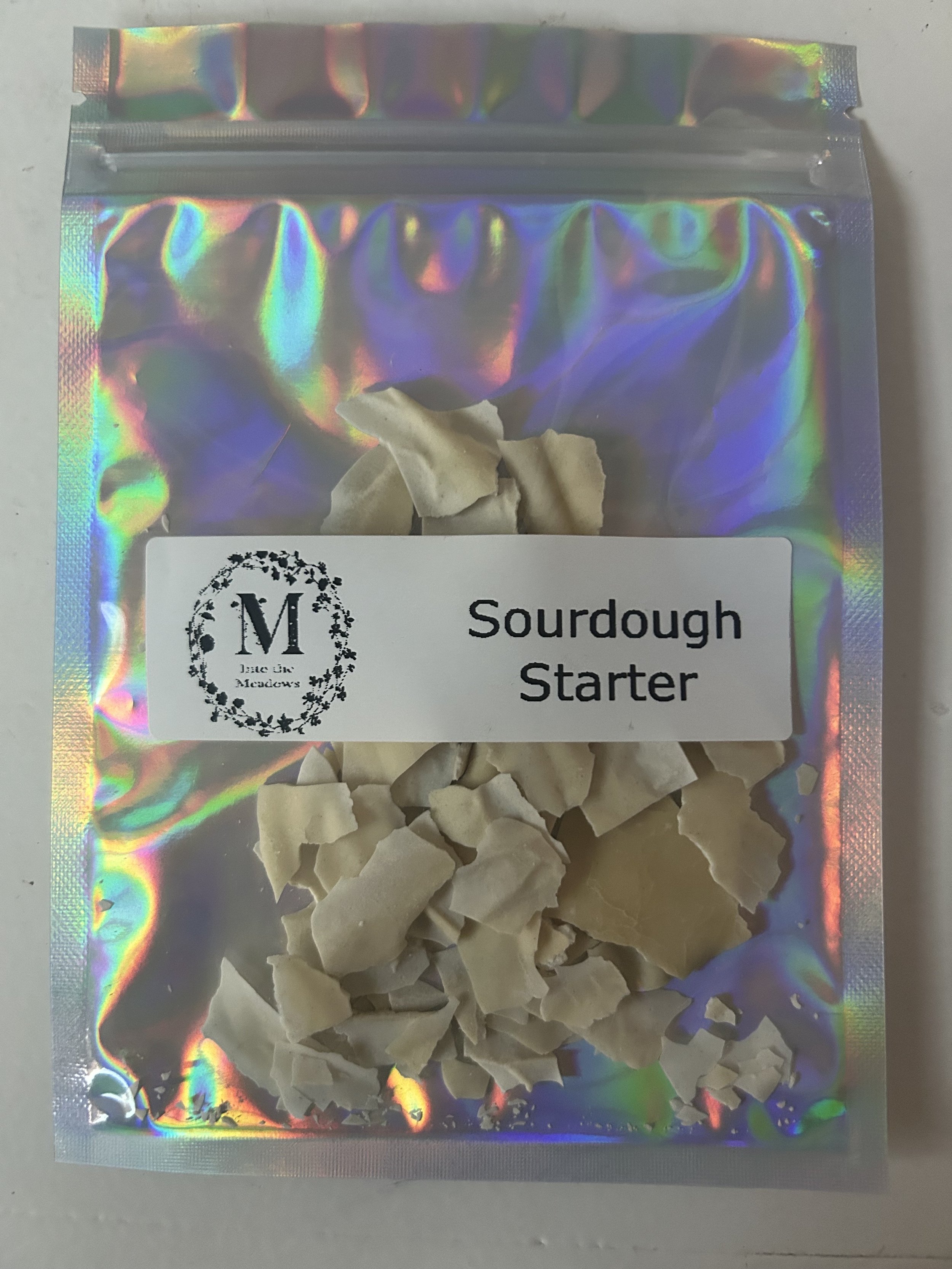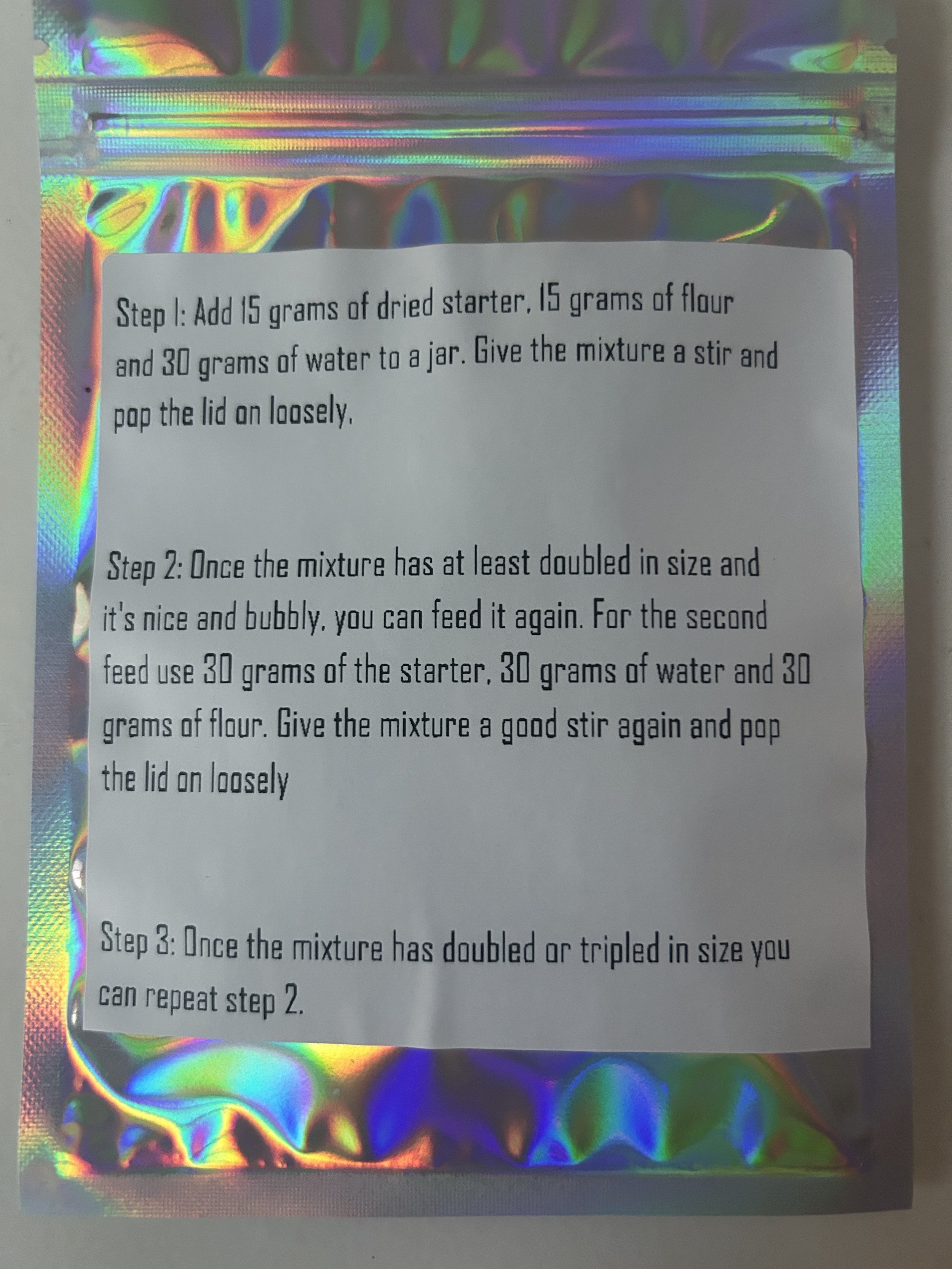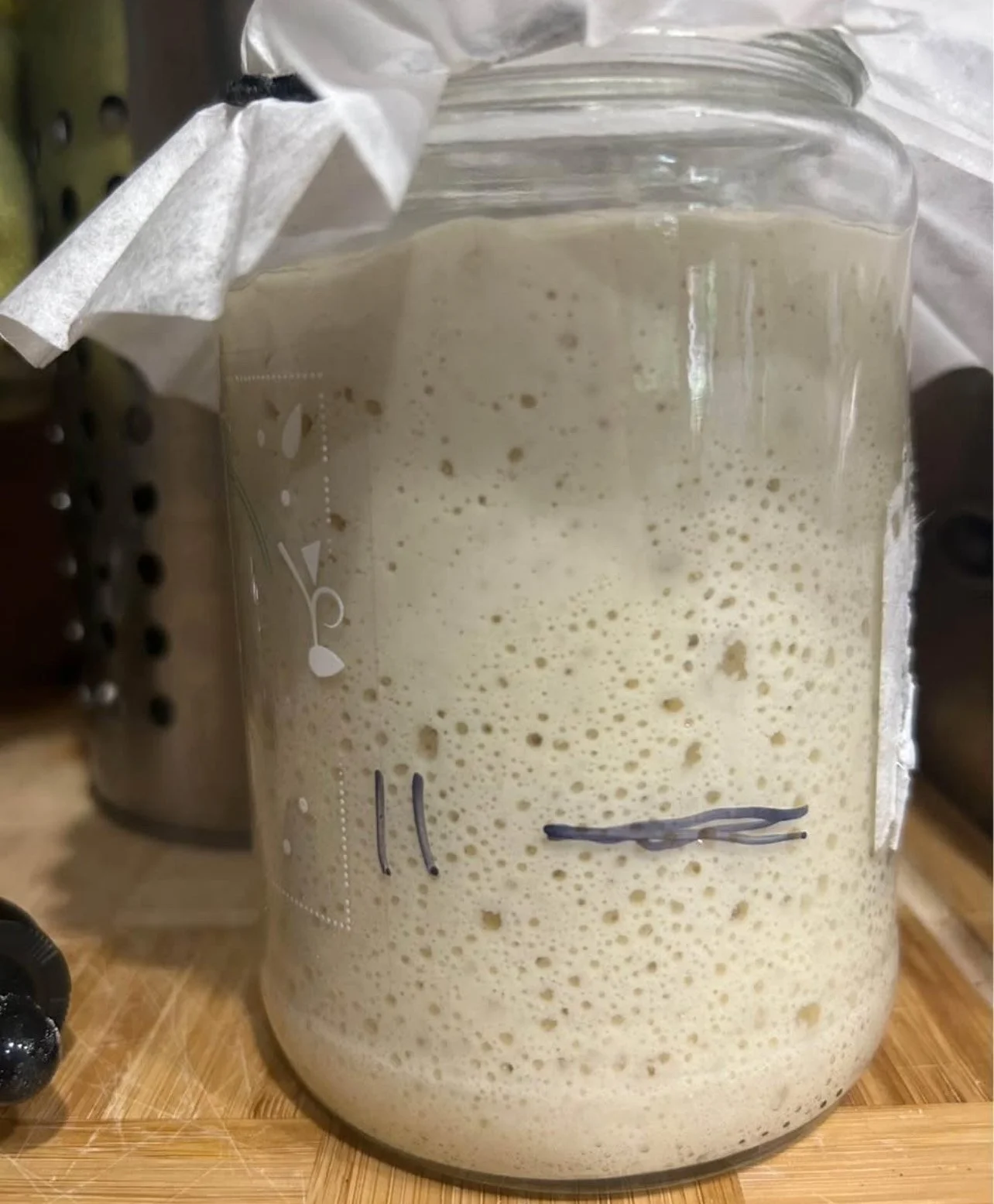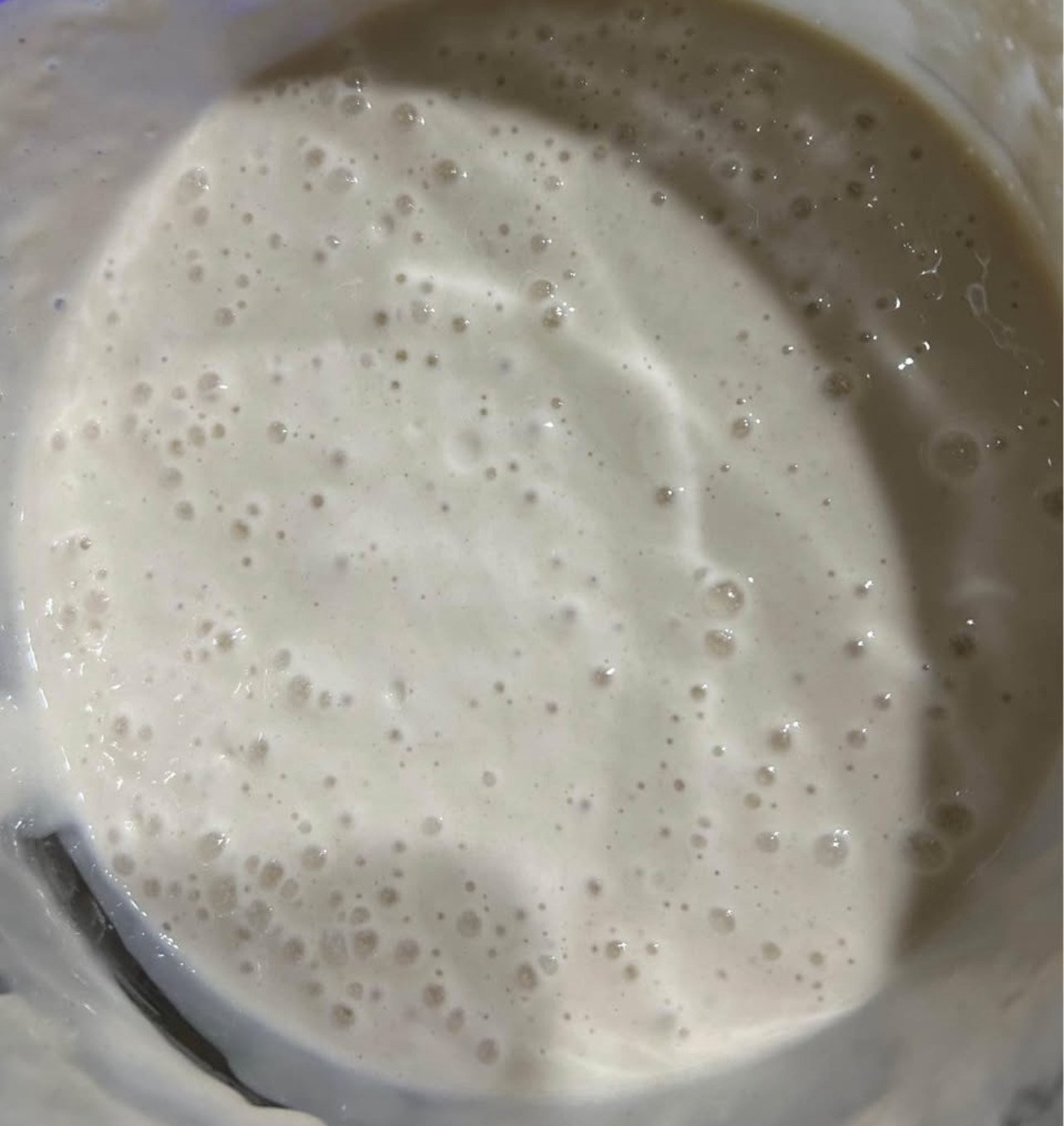 Image 1 of 4
Image 1 of 4

 Image 2 of 4
Image 2 of 4

 Image 3 of 4
Image 3 of 4

 Image 4 of 4
Image 4 of 4





Dehydrated Sourdough Starter
Dehydrated sourdough starter offers several advantages for both novice and experienced bakers.
Long Shelf Life: Dehydrated sourdough starter can be stored for months or even years without spoiling. This extended shelf life makes it a convenient option for those who may not bake frequently.
Portability: The lightweight and compact nature of dehydrated starter makes it easy to transport. This is particularly beneficial for travelers or those who want to share their starter with friends or family.
Ease of Use: Rehydrating the starter is a straightforward process. With just a little water and some time, bakers can quickly bring the starter back to life. This simplicity makes it accessible for all skill levels.
Concentration of Flavor: The dehydration process can intensify the flavors present in the sourdough culture. When rehydrated, bakers often find that the resulting bread has a rich, tangy flavor profile.
Cost-Effective: Maintaining a dehydrated starter requires less frequent feedings compared to a traditional, active starter. This can lead to reduced waste and lower flour costs over time.
Customizability: Bakers can create their own dehydrated starter from a favorite culture, ensuring that they have a backup of a unique flavor profile. This is especially useful for those who enjoy experimenting with different bread recipes.
Consistency: Using a dehydrated starter can help achieve consistent results from loaf to loaf. By starting with the same base culture, bakers can replicate flavors and textures more reliably.
In summary, the benefits of dehydrated sourdough starter make it an
Dehydrated sourdough starter offers several advantages for both novice and experienced bakers.
Long Shelf Life: Dehydrated sourdough starter can be stored for months or even years without spoiling. This extended shelf life makes it a convenient option for those who may not bake frequently.
Portability: The lightweight and compact nature of dehydrated starter makes it easy to transport. This is particularly beneficial for travelers or those who want to share their starter with friends or family.
Ease of Use: Rehydrating the starter is a straightforward process. With just a little water and some time, bakers can quickly bring the starter back to life. This simplicity makes it accessible for all skill levels.
Concentration of Flavor: The dehydration process can intensify the flavors present in the sourdough culture. When rehydrated, bakers often find that the resulting bread has a rich, tangy flavor profile.
Cost-Effective: Maintaining a dehydrated starter requires less frequent feedings compared to a traditional, active starter. This can lead to reduced waste and lower flour costs over time.
Customizability: Bakers can create their own dehydrated starter from a favorite culture, ensuring that they have a backup of a unique flavor profile. This is especially useful for those who enjoy experimenting with different bread recipes.
Consistency: Using a dehydrated starter can help achieve consistent results from loaf to loaf. By starting with the same base culture, bakers can replicate flavors and textures more reliably.
In summary, the benefits of dehydrated sourdough starter make it an
Dehydrated sourdough starter offers several advantages for both novice and experienced bakers.
Long Shelf Life: Dehydrated sourdough starter can be stored for months or even years without spoiling. This extended shelf life makes it a convenient option for those who may not bake frequently.
Portability: The lightweight and compact nature of dehydrated starter makes it easy to transport. This is particularly beneficial for travelers or those who want to share their starter with friends or family.
Ease of Use: Rehydrating the starter is a straightforward process. With just a little water and some time, bakers can quickly bring the starter back to life. This simplicity makes it accessible for all skill levels.
Concentration of Flavor: The dehydration process can intensify the flavors present in the sourdough culture. When rehydrated, bakers often find that the resulting bread has a rich, tangy flavor profile.
Cost-Effective: Maintaining a dehydrated starter requires less frequent feedings compared to a traditional, active starter. This can lead to reduced waste and lower flour costs over time.
Customizability: Bakers can create their own dehydrated starter from a favorite culture, ensuring that they have a backup of a unique flavor profile. This is especially useful for those who enjoy experimenting with different bread recipes.
Consistency: Using a dehydrated starter can help achieve consistent results from loaf to loaf. By starting with the same base culture, bakers can replicate flavors and textures more reliably.
In summary, the benefits of dehydrated sourdough starter make it an
